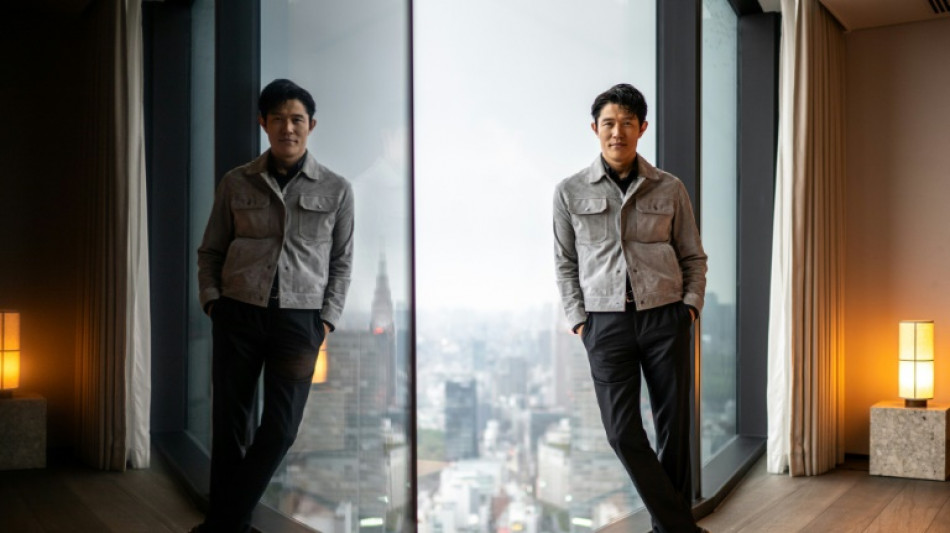

'City Hunter' manga hero drops the sexism for new live-action film
Attracting global audiences with a live-action adaptation of a classic Japanese manga can be tough, and even more so when the protagonist is a notorious philanderer.
That was the problem Japanese actor Ryohei Suzuki faced in rendering the elite sniper in the 1980s manga hit "City Hunter" palatable for the 2020s in Netflix's new live-action film that premieres on Thursday.
Set in Tokyo's seedy underbelly, "City Hunter" revolves around assassin and detective Ryo Saeba, who is tasked with "sweeping" criminals off the streets.
The brainchild of manga author Tsukasa Hojo, "City Hunter" has sold more than 50 million copies over the years, inspiring live-action adaptations globally including a 1993 Hong Kong thriller starring Jackie Chan.
Belying his icy sangfroid as a sniper, Saeba's lewd jokes and other sexist behaviour were a regular fixture in the comic.
Aware that this might grate today, Suzuki, tapped to play Saeba in the new 3D film, said his team had created some "rules".
"We made it a rule that Ryo Saeba, in our live-action version, will not touch someone's body without their consent," the actor told AFP in an interview.
While the original manga, serialised in 1985, contained some "very explicit" depictions that a subsequent anime adaptation then downplayed on television, "we updated them even further with a contemporary audience in mind", Suzuki said.
Also on the checklist were not allowing the character to joke about someone's sexuality and having an intimacy coordinator, he said.
- Independent woman -
The production team, he said, also made the hero's work partner, Kaori Makimura, a woman "even stronger and more independent" than originally portrayed.
"We made her take action and fight more proactively, even without (Saeba) helping her. We didn't want her to be someone helpless who needs to be protected by a man," Suzuki said.
A die-hard fan of the original comic, Suzuki, 41, provided input to help develop the script.
He was "very conscious" of a "City Hunter" adaptation by French actor and director Philippe Lacheau in 2018, widely hailed as the paragon of how Japanese manga should be reincarnated as live-action.
"Back then, fans including myself thought the French version was really well done -- I was like, 'thank you, Philippe Lacheau!'," Suzuki said.
- Safe bets -
"City Hunter" is just the latest in a series of Netflix's recent attempts to remake anime, following "One Piece" and "Yu Yu Hakusho" last year.
Manga and anime are "relatively safe bets for global streamers such as Netflix" to invest in, given their "built-in audiences cultivated for over three to four decades in Japan and elsewhere in Asia", Roland Kelts, author of "Japanamerica", a book about Japanese cultural influence in the United States, told AFP.
But not all 3D adaptations have been successful, "derailed by an emphasis on style over substance," including an "atrocious" Hollywood rendition in 2009 of the hugely popular "Dragon Ball" franchise, Kelts said.
- 'Globally reviled' -
Fans famously excoriated the film "Dragonball Evolution" for riding roughshod over the source material, prompting its writer to eventually issue an apology for what he admitted was his "globally reviled" remake.
"It is the rule No.1 that you respect the original manga works," Yuichi Sato, "City Hunter" director, told AFP.
Luckily Sato had Suzuki to consult, jokingly calling him the manga's "freak" and "walking encyclopaedia".
But even for the formidable duo, one aspect of the original story remained a challenge: Saeba's frequent utterances of "mokkori", a euphemism for erection.
Episodes hardly go by without the lead character voicing the risqué word with glee.
Suzuki and Sato decided after much discussion to keep it in.
"We felt it is tolerable, given Saeba doesn't always use the word sexually but almost randomly," Suzuki said.
"It is, after all, his identity."
C.P.Ajello--IM



